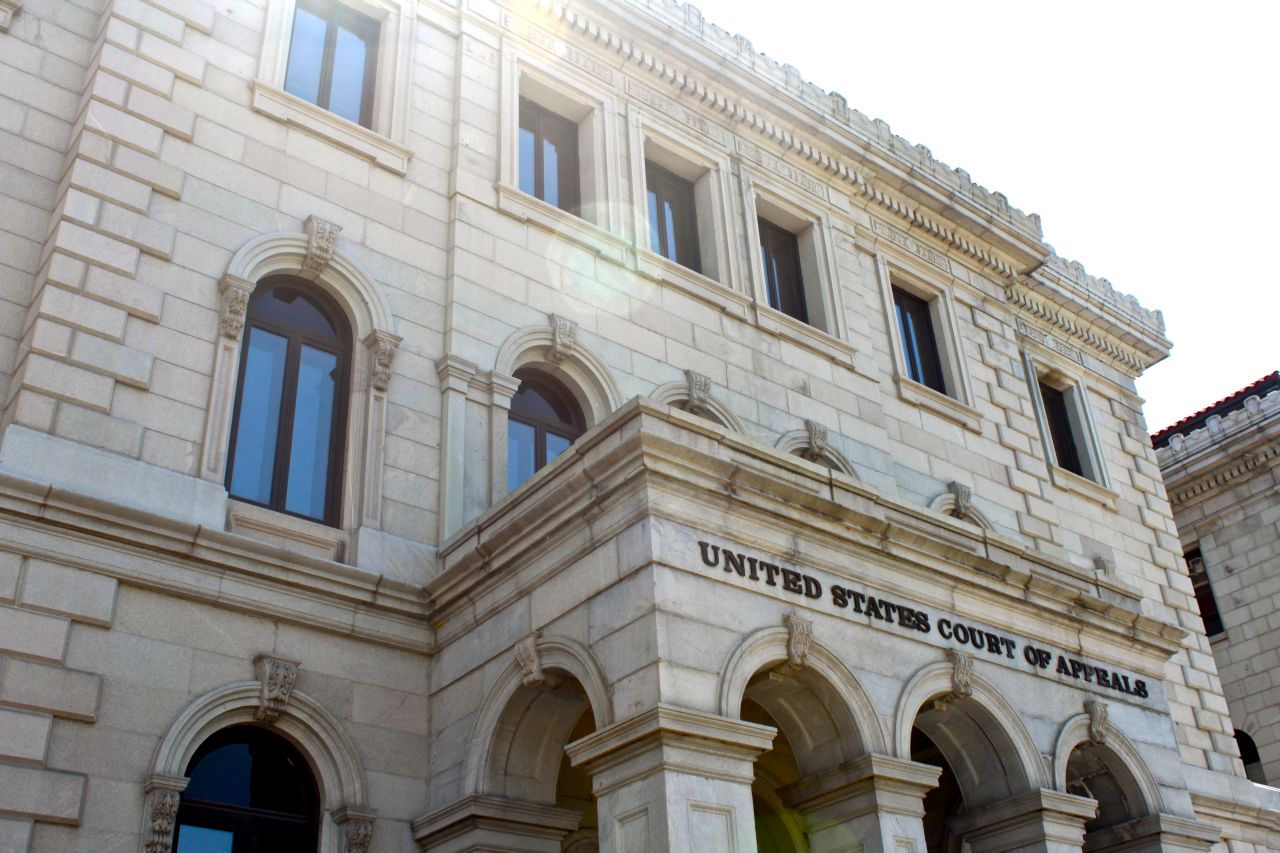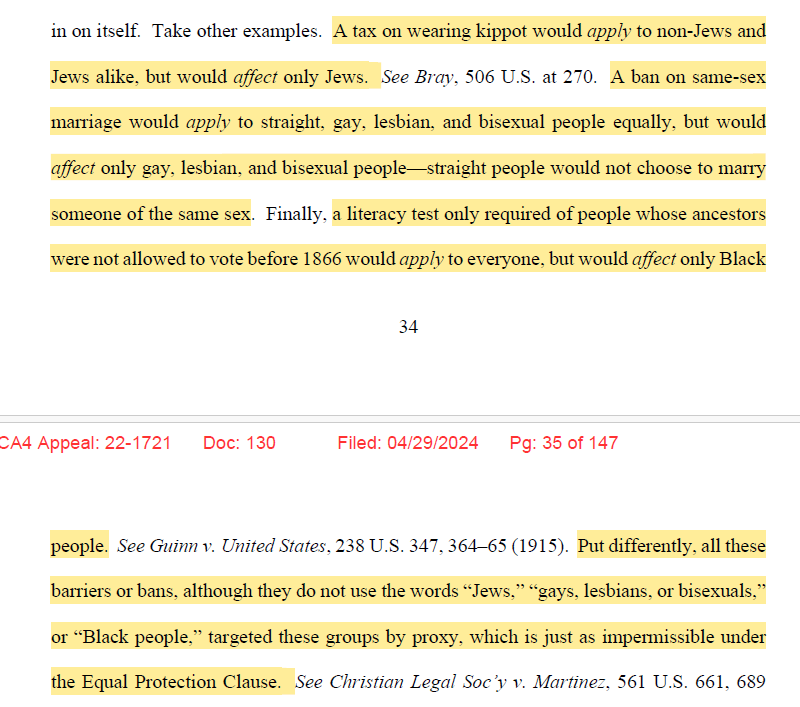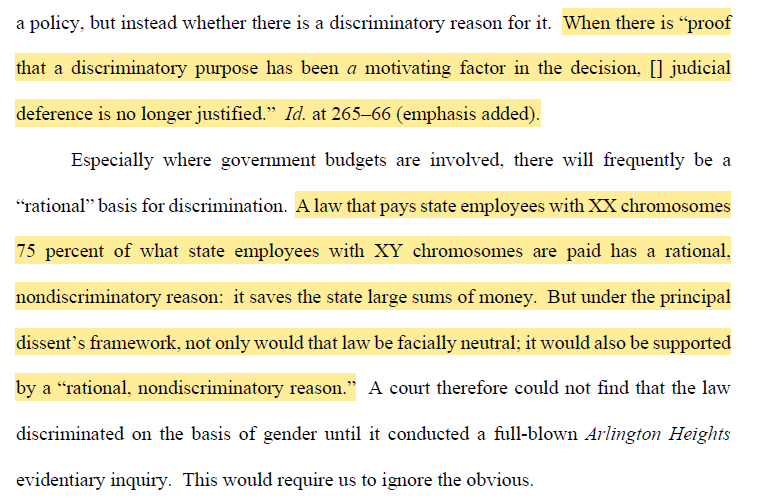National
Picking up the pieces after ‘Don’t Ask’ defeat
Repeal supporters pin hopes on lame duck session after election

Supporters of “Don’t Ask, Don’t Tell” repeal are picking up the pieces after a devastating loss in the U.S. Senate and — amid fears the opportunity for repeal has been lost — anticipating another shot at passing legislation that would end the law after Election Day.
Aubrey Sarvis, executive director of the Servicemembers Legal Defense Network, said he continues to see a path for legislative repeal of “Don’t Ask, Don’t Tell” this Congress as he acknowledged the need for new efforts.
“We do have a shot in the lame duck,” he said. “And, I think, frankly, it’s better than 50/50, but we’ve got to change the mix. … It’s unlikely the vote will be that different.”
Still, Sarvis said “time is the enemy” even as he maintained that sufficient time remains this year to move forward with “Don’t Ask, Don’t Tell” repeal.
“We’re only talking about four or five days in November, and it’s unclear how many days in December,” Sarvis said. “This bill is tough to do in the best of circumstances when you aren’t up against time. I think it can be done, but time is a factor for sure.”
Alex Nicholson, executive director of Servicemembers United, said the legislative route to repeal will be a “challenge” and “those who let this vote fail yesterday really made it difficult for us all moving forward.”
“But we have no choice but to give it our all and try our best to push it through,” Nicholson said.
Jim Manley, a spokesperson for Sen. Harry Reid (D-Nev.), confirmed the majority leader’s plans to move forward with the defense authorization bill later this year.
“Sen. Reid reserved the right to reconsider the vote and that is what we intend to do at some point in the future,” Manley said.
Even before the vote, speculation and promises that Senate leaders would try again to start work on the defense authorization had emerged.
Sen. Joseph Lieberman (I-Conn.), the sponsor of Senate standalone repeal legislation, said Tuesday during a news conference he’s received assurances from Senate Majority Leader Harry Reid (D-Nev.) that the bill would come up again in the lame duck session after Election Day.
“If for some reason, we don’t get the 60 votes to proceed, this ain’t over,” Lieberman said. “We’re going to come back into session in November or December. I spoke to Sen. Reid [Tuesday]. He’s very clear and strong that he’s going to bring this bill to the floor in November or December.”
Senate Armed Services Committee Chairman Carl Levin (D-Mich.) said during a later news conference that he hopes the prospects for passing the defense authorization bill would be different after Election Day, but couldn’t offer more details.
“But as chairman of the committee, I’m going to do everything I can to get this bill before the Senate so that it’s subject to debate and amendment,” Levin said. “But I can’t discern what that path is at the moment. It’s too soon after the filibuster damage has been done.”
At least one political analyst is skeptical about the passage of “Don’t Ask, Don’t Tell” repeal in Congress this year.
Larry Sabato, a political scientist at the University of Virginia, expressed doubt about passage after Election Day — even as he acknowledged that “a lame duck session can be unpredictable.”
“From the perspective of September, the odds seem clearly against passage this year,” Sabato said. “Repeal of [‘Don’t Ask, Don’t Tell’] would have to be fast-tracked, and that requires broad agreement in the Senate. That’s unlikely.”
On Tuesday, the U.S. Senate failed to invoke cloture to bring to the floor the fiscal year 2011 defense authorization bill — legislation to which “Don’t Ask, Don’t Tell” repeal language is attached.
The vote in the Senate was 56-43, which was shy of the 60 votes necessary to end the filibuster from Sen. John McCain (R-Ariz.).
A unified GOP caucus — in addition to Democratic Arkansas Sens. Mark Pryor and Blanche Lincoln — comprised the “no” votes that defeated a cloture vote. Sen. Lisa Murkowski (R-Alaska) was the only senator who didn’t vote.
Reid changed his vote to “no” on the legislation in a procedural move that would enable him to bring the legislation to the floor again.
Sarvis said the failure of the Senate to invoke cloture on the defense authorization bill is “shameful” because it means the continued discharge of gay, lesbian and bisexual service members.
“That vote means that gay and lesbian service members are going to continue to be discharged every day while Republicans and Democrats in the Senate figure out how to move forward,” Sarvis said.
Sarvis said the LGBT community needs to “express more outrage” over the vote to convince Senate leaders to schedule the vote again and for successful passage.
“If we aren’t offended, if we aren’t outraged by this vote, I’m not sure how the political dynamics change,” Sarvis said. “Yes, things will be somewhat better after the mid-term elections are behind us, but the few determined opponents are still going to be there.”
Various explanations have been offered for the loss on Tuesday, although partisan politics are widely seen as the reason for failure.
Some faulted the GOP caucus for being obstinate in its vote against cloture even though many Republican senators previously expressed support for the defense authorization bill as a whole.
In a news conference following the vote, Levin called the unified GOP obstruction of the defense authorization bill “outrageous and sad.”
Levin accused the GOP of initially opposing the move forward with the defense authorization bill because of the language that would lead to an end to “Don’t Ask, Don’t Tell.”
“For two days, we’ve heard here that they objected to our proceeding because of the language in the bill relative to ‘Don’t Ask, Don’t Tell,’ even though that language is very moderate language,” Levin said.
The senator noted that the provision provides that repeal would only take effect after the Pentagon working group completes its study on the issue and the president, defense secretary and chair of the Joint Chiefs of Staff certify the U.S. military is ready for repeal.
Levin added he couldn’t recall a previous time in which the U.S. Senate couldn’t proceed to debate on defense authorization legislation.
“It’s important to know that we were just simply trying to get to the point where we could debate a bill,” he said. “I don’t think a filibuster has ever before prevented the Senate from getting to a defense authorization bill.”
GOP senators — including Sen. Susan Collins (R-Maine), who supported the repeal amendment to the defense authorization bill in committee — accused Democratic leadership on the Senate floor Tuesday of being intransigent by limiting the number of amendments that could come to the floor.
“That is why I am so disappointed that rather than allowing full and open debate and the opportunity for amendments from both sides of the aisle, the majority leader apparently intends to shut down the debate and exclude Republicans from offering a number of amendments,” Collins said.
Sarvis said a number of factors played into the unsuccessful cloture vote on Tuesday, including the pressure that repeal advocates placed on Reid to schedule the vote regardless of whether 60 votes were present to move forward.
“Those who were advocating a vote this Congress always understood that we would need 60 votes to succeed,” Sarvis said. “So the reality is, the majority leader scheduled the vote, but we came up short. We lost Democrats that we thought would be with us up until a few days ago and we lost some Republicans until late last week that we thought would be with us.”
Sarvis said Levin and McCain may have to reach some agreement on the number of amendments that can be offered to move forward.
“It doesn’t look good for Democrats or for Republicans — and especially this Congress — to be the first Congress in almost 50 years not to approve an authorization for the funding of our troops, especially when we are in war,” Sarvis said.
Supporters of “Don’t Ask, Don’t Tell” repeal have also cited insufficient support from the White House as a reason why the cloture vote was defeated.
Sarvis said President Obama didn’t make an effort to encourage senators to vote for cloture in the days prior to Tuesday.
“I did not see the White House whipping the vote for 72 hours before,” Sarvis said.
Nicholson ascribed blame to Obama as well as Reid and other LGBT organizations.
“The White House didn’t lift a finger to help and certain gay rights organizations refused to criticize Senator Reid while he derailed the vote in advance,” he said. “It’s just not a good position to be in with all of the hurdles and challenges of a highly polarized lame duck session ahead.”
During a Tuesday news conference, White House Press Secretary Robert Gibbs denied Lady Gaga had done more to advance the bill than President Obama. The pop singer appeared at a rally in Maine to promote passage of “Don’t Ask, Don’t Tell” repeal legislation and tweeted with senators to encourage them to move forward.
“We wouldn’t be taking on these issues if it weren’t for the president,” Gibbs said. “This is an issue that passed the House because of the president and this administration’s work and the work of many members in Congress.”
Gibbs also ascribed blame to the 60-vote threshold needed to move forward with legislation in the Senate — even for a bill to authorize funds for the Pentagon — and said “it’s certainly not healthy for the way our government works and it sets an awful precedent for getting things done in the future.”
Sarvis said support from the White House during the lame duck session would be crucial to advancing “Don’t Ask, Don’t Tell” repeal.
“We need the president speaking on this issue in the lame duck asking senators to be with him,” Sarvis said. “We know he favors repeal, but now we need him engaged more than ever.”
In the wake of Senate defeat, repeal advocates are seeking other options to move forward on “Don’t Ask, Don’t Tell.”
Litigation seeking to overturn the law has received renewed attention. Both Log Cabin v. United States and Witt v. Air Force are moving through the courts and could lead to an end to “Don’t Ask, Don’t Tell,” although legal experts expect those cases won’t be resolved for years.
In a statement following the Senate vote, Joe Solmonese, president of the Human Rights Campaign, urged the Obama administration not to appeal a recent California federal court’s decision against “Don’t Ask, Don’t Tell” in the case of Log Cabin v. United States.
“We expect the Justice Department to recognize the overwhelming evidence that proves [‘Don’t Ask, Don’t Tell’] is unconstitutional,” Solmonese said.
Even with litigation proceeding, Sarvis maintained that the legislative route is the best path for moving forward with repeal.
“The ball game is still in the Senate,” he said. “Yes, there’s some good things going on in the courts with Maj. Witt and the Log Cabin Republican case, but in all likelihood, those are going to be tied up for years.”
One question about a possible future vote on the defense authorization bill is what impact the Pentagon working group’s study on “Don’t Ask, Don’t Tell” due Dec. 1 would have on the legislation.
Sarvis dismissed the notion that the report represents a complication because he said he thinks the report would favor “Don’t Ask, Don’t Tell” repeal.
“They were asked to provide the [defense] secretary with a set of recommendations on how to implement open service,” Sarvis said. “Well, that is not going to be hurtful. Indeed, I’m not that concerned about the results of the survey.”
Nicholson said the completion of the Pentagon report should make voting for “Don’t Ask, Don’t Tell” easier for many senators, but said its release will be “thrown into the highly charged and high politicized environment of the lame duck session.”
“Unfortunately, the working group itself has become so politicized that its utility in this whole processed has been diminished because of that as well,” Nicholson said. “Bottom line — the administration really screwed this one up.”
Many senators, including McCain, have said they want to see the report before acting on “Don’t Ask, Don’t Tell.”
Sarvis predicted continued equivocation from these senators upon the completion of the report and congressional hearings may be necessary following the completion of the study to address concerns.
“Sen. McCain says, ‘Oh, I’m going to need some time to study that report and analyze how they came up with those recommendations,’” Sarvis said. “‘We may need some hearings on that.’ So that’s going to remain a moving target.”
Another possible complication in the legislative effort to repeal “Don’t Ask, Don’t Tell” later this year is state election laws.
According to Bloomberg News, state laws in Illinois, Delaware and West Virginia terminate the terms of appointed senators immediately after Election Day. Their elected successors may start in the lame duck session this year as opposed to the start of the next Congress.
These laws mean Sens. Ted Kaufman (D-Del.), Carte Goodwin (D-W.Va.) and Roland Burris (D-Ill.) — who voted in favor of cloture on Tuesday — may have to give up their seats to “Don’t Ask, Don’t Tell” repeal opponents in the lame duck session.
Sarvis acknowledged that a worst-case scenario of the loss of all three seats would complicate efforts to move forward with the defense authorization if the Senate faces another filibuster.
“If we’re facing another filibuster, I think it’s very, very challenging if we lose those three seats,” Sarvis said.
Sarvis said he’s spoken with Chris Coons, the Democratic nominee for U.S. Senate in Delaware, about “Don’t Ask, Don’t Tell” repeal.
“He looked me in the eye and told me that if he’s in the U.S. Senate, he will be voting for repeal,” Sarvis said. “So, I take heart from that commitment.”
Sarvis said he has “no idea” how Republican candidate Christine O’Donnell would vote should she win in the November election. O’Donnell is known for her opposition to gays and has spoken out against homosexuality.
Illustration courtesy of Georgia Voice
National
United Methodist Church removes 40-year ban on gay clergy
Delegates also voted for other LGBTQ-inclusive measures

The United Methodist Church on Wednesday removed a ban on gay clergy that was in place for more than 40 years, voting to also allow LGBTQ weddings and end prohibitions on the use of United Methodist funds to “promote acceptance of homosexuality.”
Overturning the policy forbidding the church from ordaining “self-avowed practicing homosexuals” effectively formalized a practice that had caused an estimated quarter of U.S. congregations to leave the church.
The New York Times notes additional votes “affirming L.G.B.T.Q. inclusion in the church are expected before the meeting adjourns on Friday.” Wednesday’s measures were passed overwhelmingly and without debate. Delegates met in Charlotte, N.C.
According to the church’s General Council on Finance and Administration, there were 5,424,175 members in the U.S. in 2022 with an estimated global membership approaching 10 million.
The Times notes that other matters of business last week included a “regionalization” plan, which gave autonomy to different regions such that they can establish their own rules on matters including issues of sexuality — about which international factions are likelier to have more conservative views.
Rev. Kipp Nelson of St. Johns’s on the Lake Methodist Church in Miami shared a statement praising the new developments:
“It is a glorious day in the United Methodist Church. As a worldwide denomination, we have now publicly proclaimed the boundless love of God and finally slung open the doors of our church so that all people, no matter their identities or orientations, may pursue the calling of their hearts.
“Truly, all are loved and belong here among us. I am honored to serve as a pastor in the United Methodist Church for such a time as this, for our future is bright and filled with hope. Praise be, praise be.”
Federal Government
Republican state AGs challenge Biden administration’s revised Title IX policies
New rules protect LGBTQ students from discrimination

Four Republicans state attorneys general have sued the Biden-Harris administration over the U.S. Department of Education’s new Title IX policies that were finalized April 19 and carry anti-discrimination protections for LGBTQ students in public schools.
The lawsuit filed on Tuesday, which is led by the attorneys general of Kentucky and Tennessee, follows a pair of legal challenges from nine Republican states on Monday — all contesting the administration’s interpretation that sex-based discrimination under the statute also covers that which is based on the victim’s sexual orientation or gender identity.
The administration also rolled back Trump-era rules governing how schools must respond to allegations of sexual harassment and sexual assault, which were widely perceived as biased in favor of the interests of those who are accused.
“The U.S. Department of Education has no authority to let boys into girls’ locker rooms,” Tennessee Attorney General Jonathan Skrmetti said in a statement. “In the decades since its adoption, Title IX has been universally understood to protect the privacy and safety of women in private spaces like locker rooms and bathrooms.”
“Florida is suing the Biden administration over its unlawful Title IX changes,” Florida Gov. Ron DeSantis wrote on social media. “Biden is abusing his constitutional authority to push an ideological agenda that harms women and girls and conflicts with the truth.”
After announcing the finalization of the department’s new rules, Education Secretary Miguel Cardona told reporters, “These regulations make it crystal clear that everyone can access schools that are safe, welcoming and that respect their rights.”
The new rule does not provide guidance on whether schools must allow transgender students to play on sports teams corresponding with their gender identity to comply with Title IX, a question that is addressed in a separate rule proposed by the agency in April.
LGBTQ and civil rights advocacy groups praised the changes. Lambda Legal issued a statement arguing the new rule “protects LGBTQ+ students from discrimination and other abuse,” adding that it “appropriately underscores that Title IX’s civil rights protections clearly cover LGBTQ+ students, as well as survivors and pregnant and parenting students across race and gender identity.”
Federal Government
4th Circuit rules gender identity is a protected characteristic
Ruling a response to N.C., W.Va. legal challenges

BY ERIN REED | The 4th U.S. Circuit Court of Appeals ruled Monday that transgender people are a protected class and that Medicaid bans on trans care are unconstitutional.
Furthermore, the court ruled that discriminating based on a diagnosis of gender dysphoria is discrimination based on gender identity and sex. The ruling is in response to lower court challenges against state laws and policies in North Carolina and West Virginia that prevent trans people on state plans or Medicaid from obtaining coverage for gender-affirming care; those lower courts found such exclusions unconstitutional.
In issuing the final ruling, the 4th Circuit declared that trans exclusions were “obviously discriminatory” and were “in violation of the equal protection clause” of the Constitution, upholding lower court rulings that barred the discriminatory exclusions.
The 4th Circuit ruling focused on two cases in states within its jurisdiction: North Carolina and West Virginia. In North Carolina, trans state employees who rely on the State Health Plan were unable to use it to obtain gender-affirming care for gender dysphoria diagnoses.
In West Virginia, a similar exclusion applied to those on the state’s Medicaid plan for surgeries related to a diagnosis of gender dysphoria. Both exclusions were overturned by lower courts, and both states appealed to the 4th Circuit.
Attorneys for the states had argued that the policies were not discriminatory because the exclusions for gender affirming care “apply to everyone, not just transgender people.” The majority of the court, however, struck down such a claim, pointing to several other cases where such arguments break down, such as same-sex marriage bans “applying to straight, gay, lesbian, and bisexual people equally,” even though straight people would be entirely unaffected by such bans.
Other cases cited included literacy tests, a tax on wearing kippot for Jewish people, and interracial marriage in Loving v. Virginia.
See this portion of the court analysis here:

Of particular note in the majority opinion was a section on Geduldig v. Aiello that seemed laser-targeted toward an eventual U.S. Supreme Court decision on discriminatory policies targeting trans people. Geduldig v. Aiello, a 1974 ruling, determined that pregnancy discrimination is not inherently sex discrimination because it does not “classify on sex,” but rather, on pregnancy status.
Using similar arguments, the states claimed that gender affirming care exclusions did not classify or discriminate based on trans status or sex, but rather, on a diagnosis of gender dysphoria and treatments to alleviate that dysphoria.
The majority was unconvinced, ruling, “gender dysphoria is so intimately related to transgender status as to be virtually indistinguishable from it. The excluded treatments aim at addressing incongruity between sex assigned at birth and gender identity, the very heart of transgender status.” In doing so, the majority cited several cases, many from after Geduldig was decided.
Notably, Geduldig was cited in both the 6th and 11th Circuit decisions upholding gender affirming care bans in a handful of states.
The court also pointed to the potentially ridiculous conclusions that strict readings of what counts as proxy discrimination could lead to, such as if legislators attempted to use “XX chromosomes” and “XY chromosomes” to get around sex discrimination policies:
Importantly, the court also rebutted recent arguments that Bostock applies only to “limited Title VII claims involving employers who fired” LGBTQ employees, and not to Title IX, which the Affordable Care Act’s anti-discrimination mandate references. The majority stated that this is not the case, and that there is “nothing in Bostock to suggest the holding was that narrow.”
Ultimately, the court ruled that the exclusions on trans care violate the Equal Protection Clause of the Constitution. The court also ruled that the West Virginia Medicaid Program violates the Medicaid Act and the anti-discrimination provisions of the Affordable Care Act.
Additionally, the court upheld the dismissal of anti-trans expert testimony for lacking relevant expertise. West Virginia and North Carolina must end trans care exclusions in line with earlier district court decisions.
The decision will likely have nationwide impacts on court cases in other districts. The case had become a major battleground for trans rights, with dozens of states filing amicus briefs in favor or against the protection of the equal process rights of trans people. Twenty-one Republican states filed an amicus brief in favor of denying trans people anti-discrimination protections in healthcare, and 17 Democratic states joined an amicus brief in support of the healthcare rights of trans individuals.
Many Republican states are defending anti-trans laws that discriminate against trans people by banning or limiting gender-affirming care. These laws could come under threat if the legal rationale used in this decision is adopted by other circuits. In the 4th Circuit’s jurisdiction, West Virginia and North Carolina already have gender-affirming care bans for trans youth in place, and South Carolina may consider a similar bill this week.
The decision could potentially be used as precedent to challenge all of those laws in the near future and to deter South Carolina’s bill from passing into law.
The decision is the latest in a web of legal battles concerning trans people. Earlier this month, the 4th Circuit also reversed a sports ban in West Virginia, ruling that Title IX protects trans student athletes. However, the Supreme Court recently narrowed a victory for trans healthcare from the 9th U.S. Circuit Court of Appeals and allowed Idaho to continue enforcing its ban on gender-affirming care for everyone except the two plaintiffs in the case.
Importantly, that decision was not about the constitutionality of gender-affirming care, but the limits of temporary injunctions in the early stages of a constitutional challenge to discriminatory state laws. It is likely that the Supreme Court will ultimately hear cases on this topic in the near future.
Celebrating the victory, Lambda Legal Counsel and Health Care Strategist Omar Gonzalez-Pagan said in a posted statement, “The court’s decision sends a clear message that gender-affirming care is critical medical care for transgender people and that denying it is harmful and unlawful … We hope this decision makes it clear to policy makers across the country that health care decisions belong to patients, their families, and their doctors, not to politicians.”
****************************************************************************

Erin Reed is a transgender woman (she/her pronouns) and researcher who tracks anti-LGBTQ+ legislation around the world and helps people become better advocates for their queer family, friends, colleagues, and community. Reed also is a social media consultant and public speaker.
******************************************************************************************
The preceding article was first published at Erin In The Morning and is republished with permission.





















